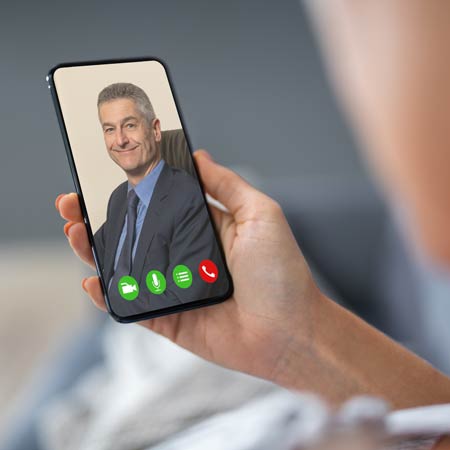Video-based telemedicine (tele-health)and telepsychiatry address patients' needs for convenient and easily accessible medical and mental health services. These approaches offer numerous benefits, such as:
- Expanding access to mental health care, especially in areas where specialty care may be limited (e.g., rural regions).
- Providing care directly to the patient's location.
- Supporting the integration of behavioral health care with primary care, which can lead to improved outcomes.
- Minimizing the need for emergency room visits.
- Reducing delays in care.
- Enhancing continuity of care and follow-up services.
- Reducing the need for patients to take time off work, arrange childcare, or travel long distances for appointments.
- Overcoming transportation challenges, such as lack of access to transportation or lengthy commutes.
- Lowering the stigma associated with seeking care.
While some individuals may initially feel hesitant or awkward speaking to someone via video, experience shows that most people quickly adapt and feel comfortable with it. In fact, many individuals may find themselves more relaxed and willing to open up from the comfort of their own home or a nearby facility. This adjustment is likely to improve as video communication becomes more integrated into daily life.
Telepsychiatry enables psychiatrists to treat more patients in remote areas.
Although a potential downside is that the patient and psychiatrist are not physically in the same room, this method can actually foster a sense of safety, security, and confidentiality for many patients.
There is substantial evidence of the effectiveness of telepsychiatry and research has found satisfaction to be high among patients, psychiatrists and other professionals. Telepsychiatry is equivalent to in-person care in diagnostic accuracy, treatment effectiveness, quality of care and patient satisfaction. Patient privacy and confidentiality are equivalent to in-person care.
Research has also found that overall experiences among all age groups have been good. There is evidence for children, adolescents and adults regarding assessment and treatment (medication and therapy). There are even people for which telemedicine may be preferable to in-person care, for example people with autism or severe anxiety disorders and patients with physical limitations may find the remote treatment particularly useful.
Telepsychiatry has been found especially effective with respect to the treatment of PTSD, depression, and ADHD.
Telepsychiatry is used in a variety of different settings, including private practice, outpatient clinics, hospitals, correctional facilities, schools, nursing homes, and military treatment facilities.
Patients can schedule appointments individually with a psychiatrist or therapist for a live video appointment. This can be with a regular provider if they offer the service or through one of a number of companies offering access to mental health clinicians for video appointments. Patients should plan ahead and prepare the just as for an in-person appointment. Have any relevant records and information, including prescriptions, and have a list of questions to address.
Telepsychiatry is helping bring more timely psychiatric care to emergency rooms. An estimated one in eight emergency room visits involves a mental health and/or substance use condition, according to the Agency for Healthcare Research and Quality. Many emergency rooms are not equipped to handle people with serious mental health issues and do not have psychiatrists or other mental health clinicians on staff to assess and treat mental health problems. A 2016 poll of emergency room physicians found only 17 percent reported having a psychiatrist on call to respond to psychiatric emergencies.
Telepsychiatry is being used in nursing homes to provide both ongoing psychiatric evaluation and care and emergency crisis intervention when it may be difficult to find local psychiatrist to assist. Many states use telepsychiatry in corrections facilities where inmates frequently require ongoing mental health care.
1) What is telepsychiatry, and how does it work?
Telepsychiatry is the remote delivery of psychiatric care via video or phone, offering services like therapy, evaluations, and medication management. It allows patients to receive mental health care from the comfort of their location.
2) Can I receive therapy and psychiatric medication through telepsychiatry in NYC?
Yes, telepsychiatry in NYC offers both therapy and psychiatric medication management, allowing you to access mental health services without needing to visit a clinic in person.
3) Is telepsychiatry as effective as in-person psychiatric services in NYC?
Yes, telepsychiatry in NYC is considered just as effective as in-person psychiatric services in terms of diagnostic accuracy, treatment quality, and patient satisfaction.


